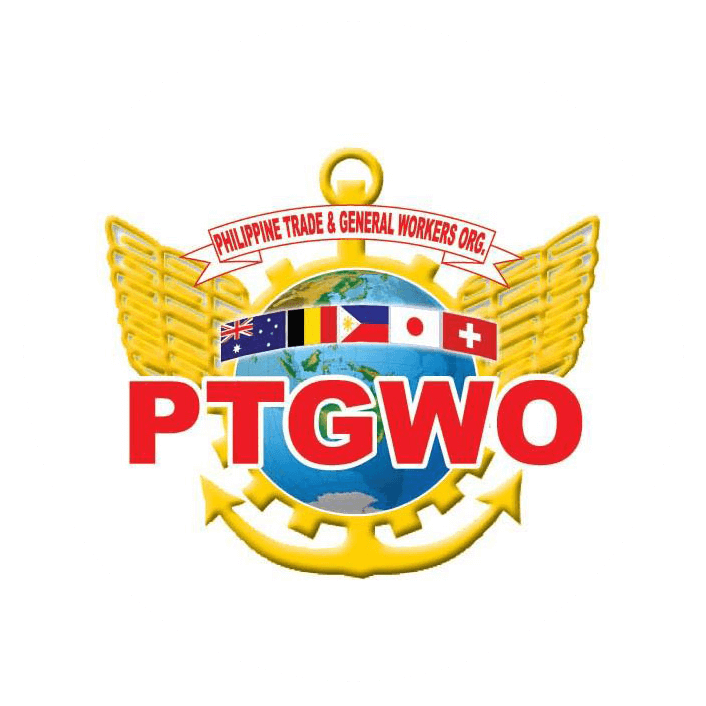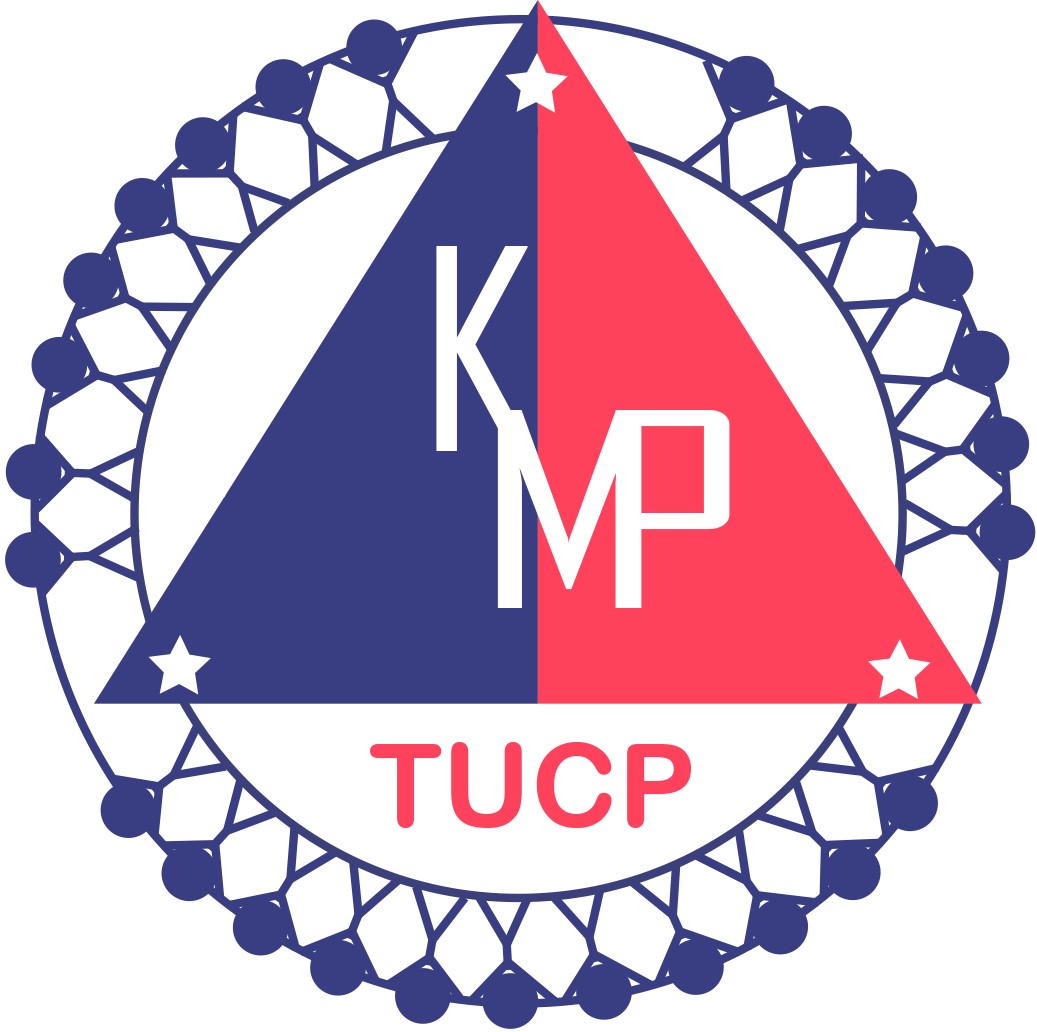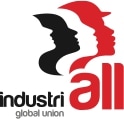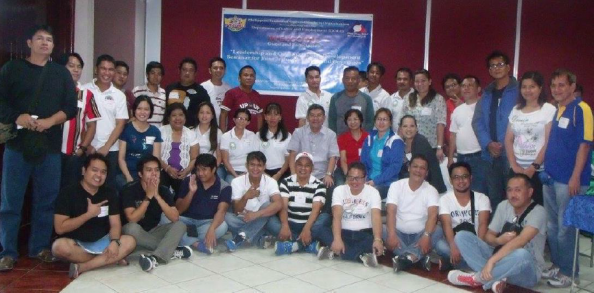The present biggest labor federation in the Philippines, the Philippine Trade and General Workers Organizations (PTGWO), in coordination with the Department of Labor and Employment, has conducted a three (3) day seminar last September 3-5, 2015 at the Tagaytay International Convention Center, Tagaytay City.
Atty. Arnel Z. Dolendo, National President, opened the convention by expressing his gratitude to the participants-in-training and furthermore, He emphasized the importance of Trade Union Preparation for the upcoming ASEAN Integration this 2015. The consequence of increase mobility would mean that foreign workers would be able to work in the country, a competition in limited employment opportunities. Moreover, Labor Relations has been redefined to standardize terms and conditions of work, regardless of nationality, should be studied to prevent the continuing “Race to the Bottom” treatment of workers. The need to work together as workers from different industries will continue to be periled while industry-specific responses could be pursued.
Ms. Rosalinda A. Manabat, National Treasurer of PTGWO, mentioned that convening the seminar was part of a long-standing partnership between PTGWO and the Department of Labor and Employment. Through the DOLE’s Workers Organizational Development Programs (W.O.D.P.), the PTGWO was able to convene several unions, regardless of affiliations, towards facilitating skills enhancement and establishing a network for collaboration.
The objective of the seminar was not only enhancing leadership capacities of labor leaders but also more so, establishing systems for cooperation and industry-level trade union actions. Mr. Darius M. Guerrero, PTGWO Projects Officer/Executive Director of CORE PEOPLE, INC. and HR/LR Practitioner walked the participants through the objectives and program of the seminar. He explained that the seminar aims to define industry specific responses to the challenges brought about by Globalization, in general, and the ASEAN Integration, in particular.
One possible response is to actually plan collective bargaining so that there would be a semblance of “industry-wide” bargaining initiative that would coordinate different unions of different companies. Interacting with global unions and enterprise-based unions of multinational companies may also be necessary. He mentioned that DO 40-03, promulgated already in 2003 somehow provides the groundwork or industry bargaining but has not been actually utilized.
The program would also allow the participants to re-think collective bargaining from enterprise-based to industry bargaining harnessing the potentials of tripartite industry structures convened by the government.
Mr. Guerrero announced a restructuring of the program, explaining that as a framework general, but brief discussion about Department Order No. 40-03, ASEAN Integration and the Industry Bargaining Experiences will be given but full tackling of the topics will be done by invited speakers from the DOLE towards the end of the semester.
Collective bargaining discussions will serve as a refresher course but it will be further expanded to give the participants the opportunity to tackle its applications at industry-level.
Mr. Alex S. Morillo, Special Assistant to the Secretary of DOLE, gave a discussion regarding the concepts of collective bargaining. “Collective bargaining or negotiations towards collective agreement is a democratic framework under the Labor Code to stabilize the relation between labor and management to create a climate of sound and stable industrial peace. It is a mutual responsibility of the employer and the union and is their legal obligation”. He prepared a Three (3) Inter-related Processes, Research and Preparation, which include Standard of living, Capacity to pay, Cost of living, and Comparative-Norm Principle; Negotiation, and Contract Administration and Evaluation.
Furthermore, Mr. Morillo discuss the five stages of collective bargaining negotiations; (1.) Submission of intention to negotiate and the proposals, sixty (60) days prior to the expiration, (2.) The Company answers the notice to negotiate within ten (10) days, (3.) The initial meeting to discuss the proposal, (4.) If both parties agreed, the CBA will be signed, if not deadlock may be called by both parties, and (5.) Union may file notice of strike, while management may file a notice of lock-out.
In case of DEADLOCK: Both parties may opt for conciliation and mediation in which government representatives through which conciliators or mediators help the parties to settle their disagreement. If the deadlock is not resolved within thirty (30) days, the union can go on strike, while management can lockout. Provided they submitted a strike-vote or lockout vote seven (7) days prior to intended strike or lockout. However, the parties may also opt to elevate the deadlock to compulsory arbitration (CA). the decision of CA can be appealable up to the Supreme Court.
“Integrative or Interest-Based Bargaining: also known as a “Win-win bargaining”, a negotiation strategy in which parties collaborate to find a “win-win” solution to their dispute. This strategy focuses on developing mutually beneficial agreements based on the interests of the disputants. Interests include the needs, desires, concerns, and fears important to each side. They are the underlying reasons why people become involved in a conflict. The Interest-based negotiation (IBN) is depended on the following principles; (a) Separate the people and the problem, (b) Focus on interests, (c) Create options for mutual gain, (d) Know your alternatives (BATNA), and (e) Determine objective criteria.
Considering that conflict is everywhere, increasing knowledge and skills in negotiation can save time and money. It may also allow teams to work well together and be more productive. It is therefore necessary to better under stand conflict. There is an order to conflict- the way that we identify it and respond to it, As we understand conflict better, we begin to see patters emerge. The more we understand individuals in conflict, the better we are able to respond thoughtfully.
According to Thomas-Killman Conflict Mode Instrument, People resolve conflicts through; Competing, Accommodating, Avoiding, Compromising, and Collaborating. The better way to resolving conflicts is through the use of interest- based negotiations. Particularly applicable to developing multi-party alliances and coalitions.
Separate the people from the problem; Negotiators have the ability to separate the substantive problem and their relationship with other. The following entangles people and problems:
· Perceptions, and Assumptions: Conflict happens in large part because of perceptions and the assumptions we make about ourselves, others and the substance of the problem. “Putting yourself in another’s shoes” (but don’t assume, check it out) – easy to say, sometimes hard to do. Talking about cognitive empathy-understanding how the other side thinks and feels about things. The reality that you need to deal with a negotiation is not necessarily objective reality. The course of negotiation is going to be determined by how you deal with reality, as each side perceives it.
· Emotion: it makes conflicts to be set on a difficult level. In work place, we do not know how much to acknowledge emotion and what to do with our own and of others.
· Communication: are also important.
It is important to focus on interests, not positions:
· Positions are “what you want”
· They are your pre-determined goals
· They are often based on power and/or rights
· The goal in a positional negotiation is to persuade
· They are win-lose
In contrast, interests are:
· If positions are “what you want”, interests are “why do you want them?”
· They are your hopes, fears, concerns and priorities.
· There are three types:
o Substantive
o Procedural
o Psychological
Negotiations for better management of conflict should focus on the interest:
| POSITIONS | INTERESTS |
| – Solutions to problems | -Why a particular solution is preferred |
| – Specific & Definite | -Reasons underlying positions |
| -Basis for argument | -Require explanation not justification |
| -Require justification | -Start discussion |
| -End discussion |
It is important to focus on interests because:
· Interests define the problem
· Interests allow for a variety of possible solutions
· Interests allow for a solution that may not involve compromise
· Interests help us evaluate a possible solution
· Focusing on interests provides increased understanding between people in conflict.
In understanding interests, we could find other options that could promote mutual gain. It allows us to think out of the box and explore.
It should also allow the negotiators to define their “Best Alternative to Negotiated Agreement” or BATNA; (a) Know your BATNA focusing on what you want to achieve and the different ways to accomplish this, (b) Strengthen your BATNA by constructing your BATNA to be more achievable, probable, or satisfying more of your interests, and improves your confidence during negotiations, and (c) Consider other side’s BATNA by making their BATNA less attractive to them.
Lastly, it is important that we set Objective Criteria for understanding fairness and acceptability.
Second Day, a workshop was established in which the participants are dived into groups of four (4). Each group will have to indicate the different problems that the Unions are facing and the action or solutions regarding for those problems. Furthermore, some groups declare some policy or law regarding to the action.
After the activity, Mr. Darius Guerrero discusses the upcoming challenges for the Trade Union. The demands of the globalizing market consequently result to the redefinition of labor relations. Very recently, he said, the initiatives towards ASEAN Integration, which includes working towards increased mobility of the labor force, will greatly affect unionism and employment.
He proceeded to explain that Globalization is used to generally describe the various totality of global changes that tends to redefine nation-state boundaries: the fast changing and developing information and communication technology; the increasing domination by computers and robotics; the regional economic groupings that lay down policies on tariff and trade; globalism with the creation of yet another global regulatory mechanism – the World Trade Organization; the retreat of many communist regimes and their seeming embrace of the “evils” of capitalism; the seeming lack of vision and strategy particularly among political leaders of the East to set-up alternative societal systems that are more authentically humanist; labor migration policies; and the powers and structures of multinational companies and global financial institutions.
He also cited that the current economic situation of the United States or even Japan is affecting the workers and countries of the East. Companies that are either export-oriented or are import-dependent particularly on parts/assemblies or raw materials from other parts of the globe resulted in the repatriation of many of our overseas contract workers. We are experiencing major lay-offs in our semi-conductor industry. He noted the obvious incapacity of our economy to actually absorb the displaced workers from both the local and overseas employment.
Unions in its traditional character and nature are threatened by more dynamic and “out of the box” systemic innovations and/or legal “circumventions”. Focused on regular and permanent employment, union membership is at a decline and employment relations become more complicated rendering it difficult to ensure security of tenure of its member. The Petroleum and Chemical Industry unions are facing a similar fate with the continuing entrants of other industry players and the increased flexibilization of labor.
Considering the premises, strengthening trade unions, the only organization of workers that has both the track record and the legal guarantees to pursue the rights and welfare of the workers, becomes more imperative.
It is within the framework that leaders of the unions in the industry have to be continuously trained with the necessary leadership skills and capacities that will help them respond to the challenges of the times. (see DOLE DO 40-03, section 1)
Last Day of the Seminar, Hon. Jasper Jay Javines from the Department of Labor and Employment explains the concepts and experience of industry bargaining, that the Legal Frameworks for which the discussions about bargaining are hinged on the Constitution of the Philippines, Labor and Social Legislation, Civil Code Provisions on Contracts, Company Rules and Regulations and Collective Bargaining Agreements.
It is important to, first, determine whether there is an existence of Employer-Employee Relationship through understanding:
· Selection and Hiring
· Payment of Remuneration/ Wages
· Control
· Dismissal
Grievance, is a dispute or controversy between the employer and the collective bargaining agent/employee arising from the interpretation or implementation of their CBA and/or those arising from the interpretation or enforcement of company personnel policies, for the adjustment and resolution of which the parties have agreed to establish a machinery or a series of steps.
The National Conciliation and Mediation Board mandate:
· Ensure prompt response to all labor-management disputes that may arise;
· Shall work towards early and amicable settlement.
Hon. Benjo Santos M. Benavidez, O.I.C. Director, Bureau of Labor Relations – DOLE, tackles the issue of ASEAN Integration. His presentations will focus primarily on the aspects relating to Labor and Employment. He explained that the ASEAN Economic Community (AEC) intends to deepen and broaden economic integration through; Single market and production base, Competitive economic region, Equitable economic development, and Full integration in global economy.
Moreover, the Labor-sector action points are cross-cutting in the three (3) ASEAN Community Blueprints:
1. ASEAN Political-Security Community:
· Strengthen criminal justice responses to trafficking in persons
· Protect victims of trafficking
2. ASEAN Economic Community:
· Facilitate movement through issuance of visas and employment passes of business persons and skilled labour
· Work toward recognition of professional qualifications
· Complete negotiations of, develop new, and implement mutual recognition arrangements
· Strengthen human resource development and capacity building in the area of services
· Develop core competencies and qualifications in priority services occupations
· Strengthen active labour market program capacities in Member States.
3. ASEAN Socio-Cultural Community:
· Invest in human resource development
· Promote decent work
· Strengthen entrepreneurship skills
· Provide social welfare and protection against possible negative effects of globalization.
· Protect and promote migrant workers.
Director Benavidez pointed out on the action points of the Labor-sector. He stresses that contrary to perceptions, labor mobility refers only to certain skills and professions. He also clarified that under the AEC 2015, another misconception is that it promotes labor migration. He clarified the difference:
| Movement of Natural Persons (MNP) | Labor Migration (OFWs and Immigrants) |
| Only covers specific categories of natural persons – business visitors, investors, intra-corporate transferees and contractual service suppliers | Open to all jobseekers and/or employees |
| Service suppliers only in sectors covered in the commitments of destination country (Service C) | Employees in any sector of the destination country |
| Employees of a Member’s service supplier moving to a service consumer in another Member State to provide the services:Cannot work for government | Employees of any business in destination (government, non-government, domestic or foreign) |
| Cannot access labor market in destination countries:Cannot apply for citizenship or residency | Temporary contracts may lead to permanent employment & residency |
The success of any organization depends so much on the combined efforts of each individual member. In fact, teamwork may be its competitive edge over their competitors.
He (Hon. Benavidez) assured the unions that while a lot of things have yet to be done, DOLE continuously ensures that the workers are protected and that their rights are promoted.
In Closing, National Executive Board Member Mr. Virgilio Alcantara, President of Indophil Textile Workers Union, thanked the officers of the PTGWO and the participating union for a very productive seminar. He said that his union has been with the PTGWO for more than three (3) decades and it will continue to be part of the organization knowing that it remains forward looking to prepare the workers to up-coming challenges of the times. He proposed greater collaboration and cooperation between unions in the industry regardless of affiliations in order to address the issue of contractualization and the increasing possibility of threat caused by labor migration/ entrance to the country.





0 Comments